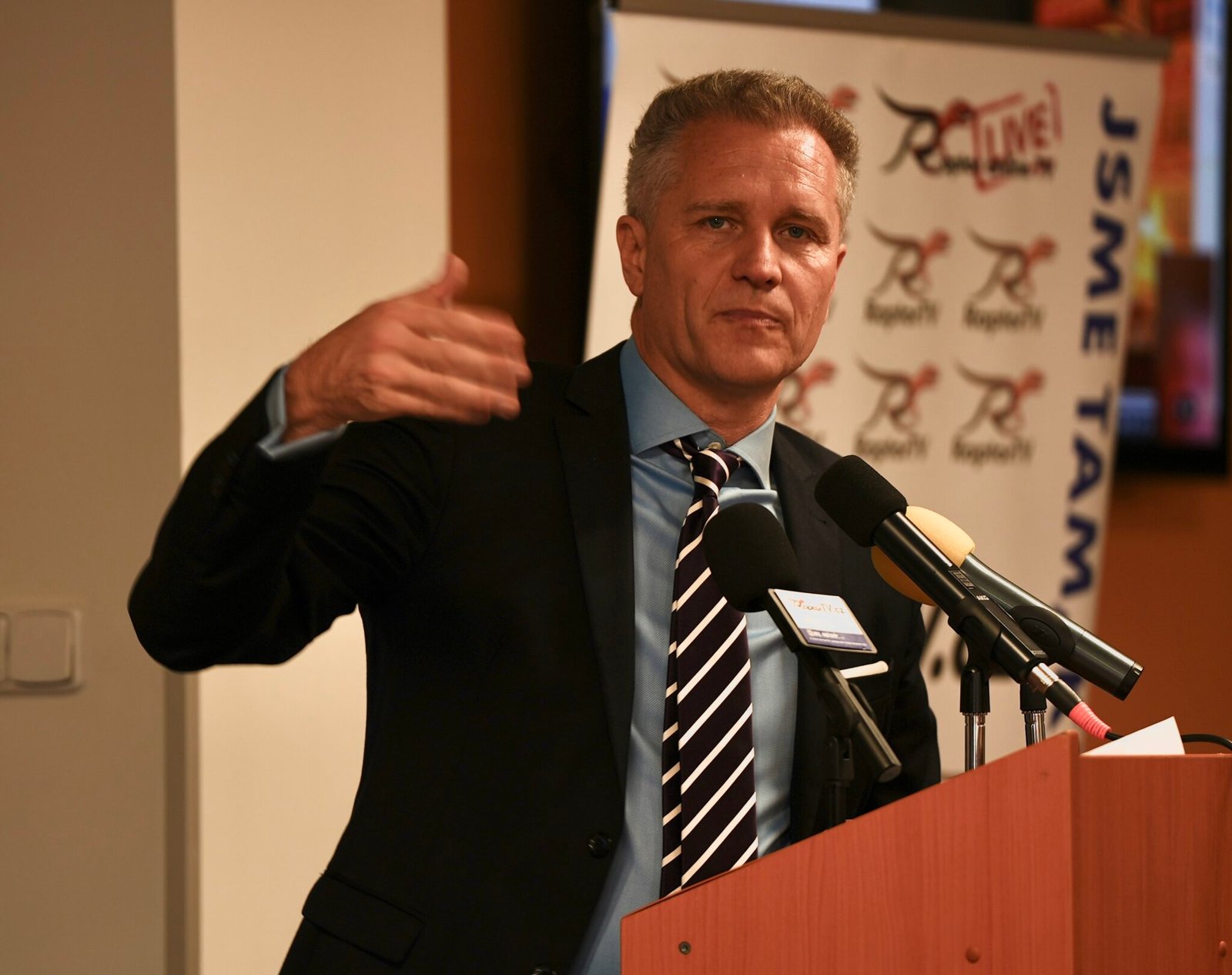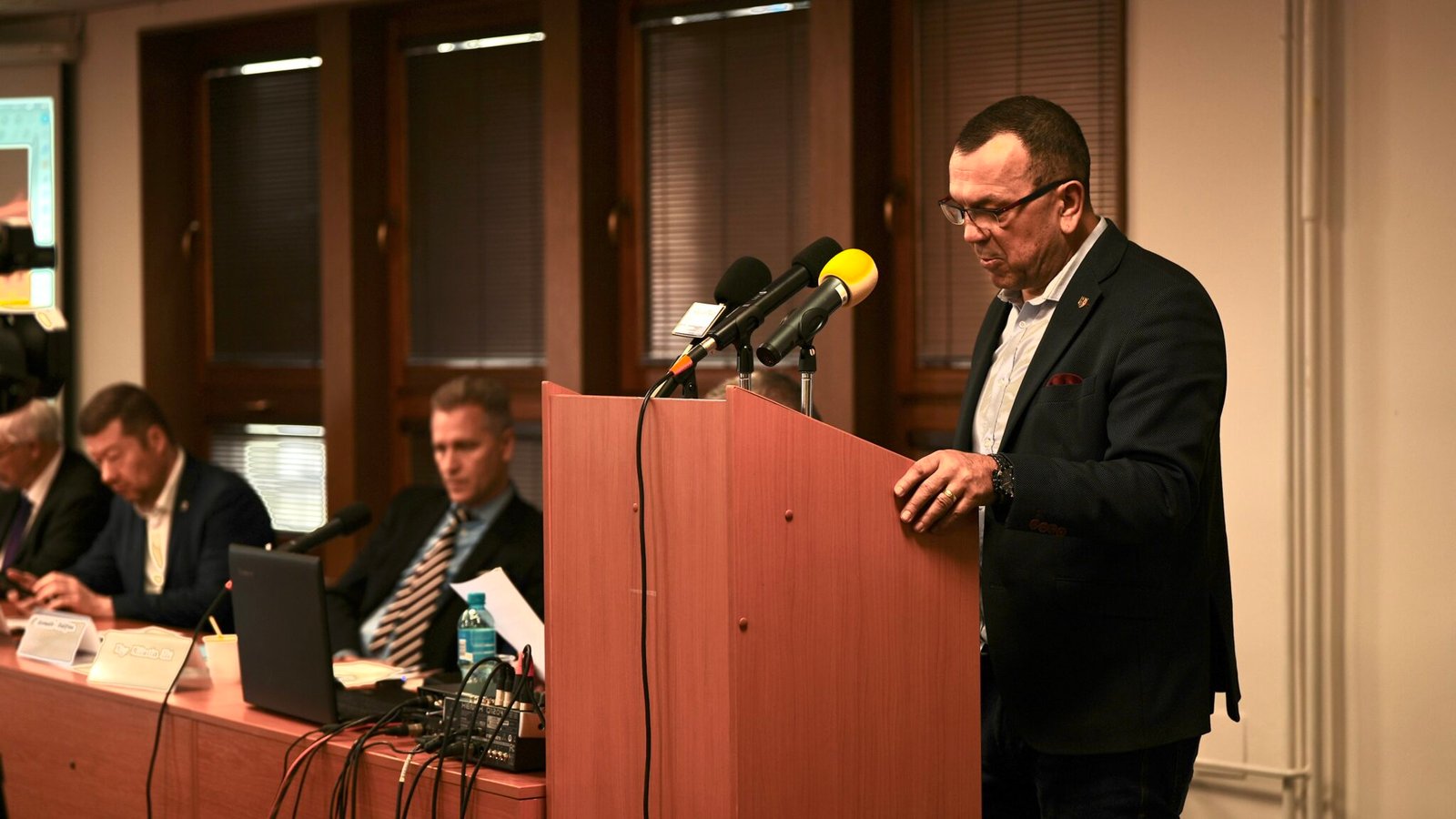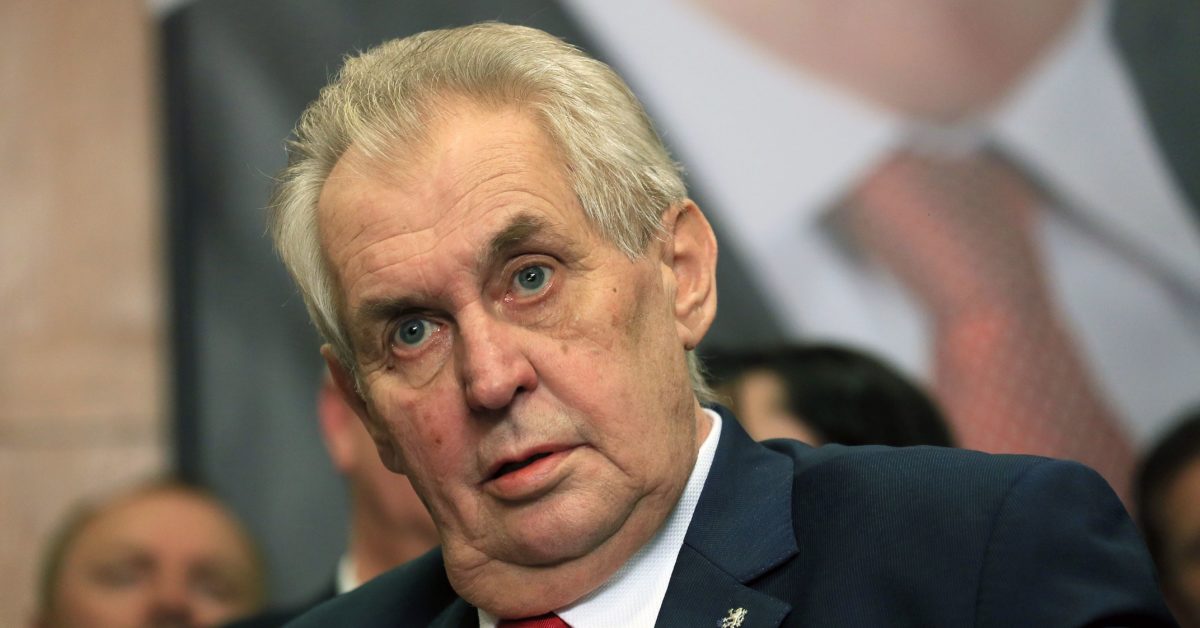Overlooking the banks of the Vltava River—with Prague’s iconic Charles Bridges visible from the windows—distinguished parliamentarians, academics, and other dignitaries from across Europe met for a conference organized by the Institute for Geostrategic Studies Geopolitikon. The conference, whose topic was “Violations of International Law in Kosovo and Ukraine,” marked the 25th anniversary of the Kosovo War.
Among the high-ranking political figures who gave addresses were Czech President Miloš Zeman, Freedom and Direct Democracy (SPD) leader Tomio Okamura, Alternative for Germany (AfD) Bundestag member Petr Bystron, Czech MP Jaroslav Foldyna, and Czech MEP Dr. Ivan David, who formerly served as the Czech Minister of health. Several academics from pertinent fields were also present.
The conference addressed the implications of the wars in Kosovo and Ukraine, with the organizer—political scientist Iljic Milutin—arguing that NATO’s role in Kosovo opened up Pandora’s box, leading to subsequent U.S. wars of aggression.
Former Czech President Miloš Zeman, during the conference’s opening comments, sharply criticized the recognition of Kosovo, denouncing it as supporting a state associated with mafia structures and repression of the Serbian minority. He even went so far as to say that the collective West’s recognition of Kosovo was and remains “a disgrace.”
Zeman argued that “Kosovo sets a dangerous precedent” as “great powers impose their will on smaller states and ruthlessly change existing borders.” He called for consistency in international standards, comparing NATO’s intervention in Yugoslavia to Russia’s actions in Ukraine.
“We do not make the world better by closing our eyes to problems and pretending they do not exist or have disappeared,” Zeman said. “The cases of Kosovo and Ukraine teach us how tough and unyielding superpowers can be when it comes to their interests. I think it is important not to give up in the face of great power, to persevere, and to strive to remedy very painful injustices. We live in a world where morality and values are often brandished, but mainly they are used to beat down ideological opponents. I always miss ordinary humanity in those torrents of pathetic words. And it is precisely humanity that commands us to stand with those who suffer injustice.”
Okamura, for his part, highlighted the historical context of the right to self-determination for nations, emphasizing its importance and universality. He criticized actions taken against nations seeking independence and condemned the European Union, saying that it is “explicitly built on denying the right to self-determination, and not only does it not defend oppressed nations seeking independence,” but that it “systematically eradicates this right to sovereignty of nations on their territory.”
Next, Bundestag member Petr Bystron, who is soon to be serving as an MEP for the anti-globalist AfD following the European elections this summer, stated that the bombing of Yugoslavia and Kosovo’s violent secession was a pivotal moment in post-WWII politics.
Bystron argued that NATO shifted from a defense alliance to a tool for advancing US geopolitical interests through the war. Bystron also condemned Germany’s involvement, marking its first act of aggression since 1945.

Photo: Petr Bystron /voiceofeurope.com
He criticized Germany’s justification of the war, citing fake news and lies, including the debunked claim by then-German Defense Minister Rudolf Scharping about the “Horseshoe Plan” for expelling Kosovo Albanians.
The AfD foreign policy spokesman pointed out parallels between the presentation of false evidence to justify military actions in Iraq and the Kosovo conflict. He cautioned against trusting politicians, particularly those with globalist agendas pushing for war, advocating thorough investigation and skepticism toward any involvement in foreign conflicts.
“The violation of international law,” in the case of Kosovo, Bystron continued, “is absolutely evident,” adding that “after 25 years, we have enough evidence to evaluate that it was indeed a mistake, and I think the time has come for us to revise that mistake. The era of a unipolar world, the era of US dominance over the whole world, is over. We are now in the 21st century, living in a multipolar world, with the influence of China, Russia, India, all the states united in BRICS growing stronger.”
MEP Dr. Ivan David, former Czech Minister of Health during the Kosovo War, highlighted that the Czech government’s endorsement of NATO interventions was coerced amid public opposition. He stressed that transatlanticists within the Czech government at the time applied considerable pressure, claiming that a small Central European country like the Czech Republic is obligated to follow when “asked” by the USA.
Dr. David also noted that the Czech Republic was unexpectedly admitted to NATO just a few months before the outbreak of the Kosovo War, although it had not yet met all formal criteria.
He stressed the subjective nature of interpretations in international politics and law, cautioning against blind acceptance of propaganda and manipulation. Furthermore, the MEP for the Czech anti-globalist Freedom and Direct Democracy (SPD) noted the role of superpowers and the consequences of their actions. In the case of the war in Ukraine, he said, we should “always remember that this is a conflict between superpowers—in this case, the United States and Russia.”
“Both of these superpowers are currently threatened. the United States by some internal decay and by dedollarization, which can of course lead to the collapse of their power,” he continued.
Dr. David also cited examples of Russia’s strategic moves in Crimea and the failure of the Minsk agreements. The speaker expresses concern over the Czech government’s stance on the conflicts and the erosion of international law, and like Bystron, drew attention to the growing influence of BRICS nations and questioned the unity of the West.
Czech MP Jaroslav Foldyna, who also serves as the director of the Institute for Geostrategic Studies Geopolitikon, expressed a similar opinion on NATO’s intervention in Yugoslavia, harshly condemning the military alliance’s demands such as unrestricted access to Yugoslav territory, which he likened to an illegal occupation.

Photo: Jaroslav Foldyna /voiceofeurope.com
Apart from the parliamentarians, Italian media scholar Prof. Giuseppe Maielo, Ph.D., Ukrainian lawyer Olena Maksynenko, Serbian legal scholar and former defender of President Milosevic Milosevic before the International Tribunal in The Hague Dr. Goran Petronijevic, delivered brief lectures on the various matters related to the topic at hand.
Geopolitikon is set to host another event on Monday, February 19th, where speakers from the Czech Republic, Germany, Poland Hungary, and Slovakia will discuss the EU’s planned enlargement into the Western Balkans and Ukraine.
Source: www.voiceofeurope.com





